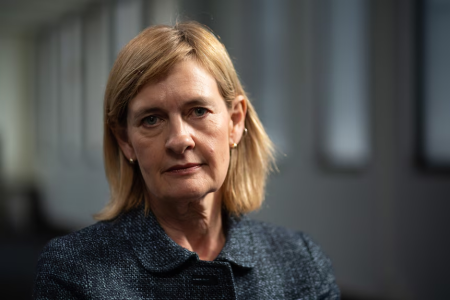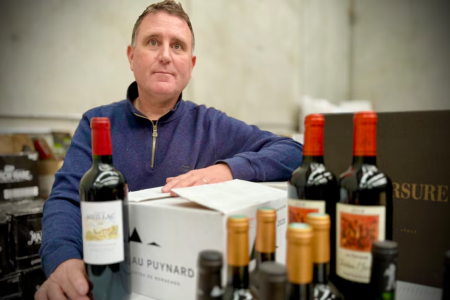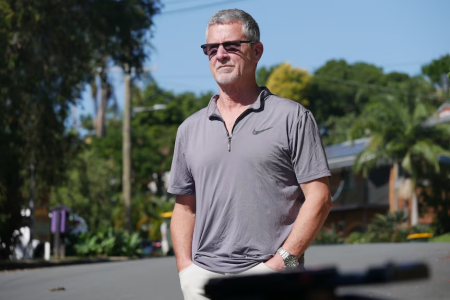First Guardian collapse leaves thousands at risk of losing super as ASIC freezes director assets
By
ABC News
- Replies 0
In mid-2023, the 41-year-old, who runs a wholesale food family business in Melbourne, was contacted by a financial advisory company called Venture Egg, which convinced him to roll his super savings from ANZ into a super fund called AusPrac.
"They talked a big game," he tells ABC News.
"They were more like someone selling you cars … just relentless, relentless people."
“They were talking numbers like, 'We'll have you $800,000 in your super by the time you retire, or $1 million.' You know, really crazy things like that."
After reinvesting his entire superannuation savings, Mr Sanchez was checking on the progress of his super fund.
He noticed that withdrawals had been frozen.
This had been happening for months, but it wasn't until January that he was informed that withdrawals from his super fund had been frozen since May 2024.
"When I got that email [from AusPrac advising the superannuation money had been frozen], my stomach dropped — I just had this sick feeling."
It turns out, the story he was sold by Venture Egg's slick financial advisers was too good to be true.
Savings channelled into First Guardian Master Fund
As Mr Sanchez later learned, his super money wasn't being reinvested to diversify and grow his retirement savings.
It was being channelled into "a cash hub" controlled by the directors of a managed investment scheme he had never heard of called First Guardian Master Fund.
Venture Egg had convinced Mr Sanchez to transfer his funds over to Interprac Financial Planning (which was previously trading as AusPrac), an Australian Financial Services Licence (AFSL) holder.
While Interprac has since cut ties with Venture Egg, and there have been Federal Court orders freezing certain assets belonging to Venture Egg's then-director Ferras Merhi, Mr Sanchez says it was Venture Egg that convinced him to channel all his superannuation into First Guardian without disclosing to him where and how it was investing.
He is among 6,000 Australians who invested $590 million with First Guardian, which collapsed earlier this year, and which is currently under investigation by the corporate watchdog, the Australian Securities and Investments Commission (ASIC).
Investors were advised to roll their superannuation assets into a retail choice superannuation fund and then to invest part or all of their superannuation into First Guardian.
First Guardian was available to investors on superannuation platforms hosted by Equity Trustees, Netwealth and Diversa.
While this may have been written in the legal documents they signed, many of them say they had no idea that their funds would end up with First Guardian.
The same thing happened with another now-collapsed fund called Shield Master Fund.
In that case, more than $480 million was invested by at least 5,800 Australians who accessed it primarily through superannuation platforms, the trustees for which were Macquarie Investment Management and Equity Trustees Superannuation.
ASIC is now considering whether to take legal action against Macquarie and Equity Trustees for their role in the collapsed Shield and First-Guardian-managed investment schemes, and it has said a decision will be made as soon as next month.
As the regulator investigates the elaborate financial ties, and liquidators work to repay creditors, thousands of hardworking families fear they will never see a cent of their superannuation.
First Guardian former director David Anderson doesn't want 'trial by media’
On Wednesday, the Federal Court made interim travel restraint orders against Mr Anderson and another director Simon Selimaj, who are now banned from leaving or attempting to leave Australia until February 27, 2026.
Public court documents obtained by ABC News have also revealed Mr Anderson moved $274 million into offshore companies tied to him shortly after he was alerted to the corporate watchdog's probe. ASIC investigators have said that money will be difficult to recover.
Between June 2020 and September 2024, ASIC also alleges that $5.6 million was deposited into Mr Anderson's personal ANZ account, "without any legitimate basis for payments in that amount being apparent to ASIC or disclosed to investors".
He allegedly used about $16,000 to make a mortgage payment on his multi-million-dollar Yarra riverfront home, according to court documents seen by ABC News.
"ASIC alleges that Falcon and its directors and officers may have failed to act in the best interests of members," ASIC told the court, according to the documents seen by ABC News.
"Falcon appears to continue to redeploy the limited funds it has received to illiquid investments, despite representations made to investors that it would fulfil redemption requests and reopen the First Guardian Master Fund for investment once the cash receivables are received."
ASIC also said that since the suspension of the applications and withdrawals in May 2024, Falcon may have misled investors about the security of their investment and likely returns.
"A number of the investments made by the First Guardian Master Fund appear to have been either entered into for improper purposes, or managed inappropriately," the court documents noted.
This included investments on terms that were "not in the best interests of investors" and which were "infected by conflicts of interest".
But the legal representatives acting for Mr Anderson, Dan Mackay of Mackay Chapman lawyers, said as yet, "there have been no findings of fact or law by any court or tribunal, nor by ASIC".
He said Mr Anderson declined an interview with ABC News, "as he does not want this to become a trial by media".
"Mr Anderson will fully exercise his rights in response to allegations which may be made against him at the appropriate time in the appropriate forum," Mr Mackay said in a legal letter to ABC News.
Mr Mackay said that while the Federal Court proceedings had become matters of public record, they were "merely allegations made by ASIC of concerns of a particular ASIC officer held at a particular point in time, in the context of what is an ongoing and complex investigation by ASIC. They are no more.
"Further, the evidence put forward by ASIC in support of the Federal Court proceedings is untested, there having been no necessity for cross examination of ASIC officers in the particular context of the Federal Court proceedings."
First Guardian investor funds allegedly loaned to offshore businesses
ASIC's tracing of financial records indicated that the First Guardian fund received $590 million in investor funds. But the stated value of the fund assets by one its directors was only $506 million.
Therefore, ASIC investigators said that, in the "best-case scenario", $81 million of investor funds were unaccounted for, but conceded the money loaned to overseas businesses may never be recovered.
Letters to ASIC from furious investors shown in court reveal one investor stands to lose $677,000, while another was relying on their superannuation for urgent spinal surgery.
"Responsibility for most, if not all, of the concerns raised by ASIC regarding the mismanagement of the First Guardian Master Fund and the direction of investor funds into illiquid and risky investments falls squarely with Mr Anderson," ASIC said in court.
In reference to the travel bans and asset freeze, Mr Mackay said the court had the power to make "certain facilitative or protective orders in the context of an ongoing investigation by ASIC".
"The legal and factual threshold for such orders is low and does not require the court to finally determine any matters," he said.
"Necessarily they involve no findings of fact, and none have been made."
He also added that, because the First Guardian Master Fund and its sub-funds are being wound up by the liquidators of Falcon, "any return to investors will be dependent upon the outcome of that liquidation and windings up, and the steps taken by the liquidators".
ASIC also investigates Ferras Merhi
ASIC is also investigating Melbourne-based financial adviser Ferras Merhi who controlled Venture Egg Financial Services and pushed thousands of clients into the First Guardian Fund and the Shield Master Fund.
The Federal Court has made interim orders freezing certain assets of Mr Mehri, who was contacted by ABC News. His lawyers PCL Lawyers were also contacted and a receptionist told ABC News they were not commenting on any media matters.
According to ASIC, the former VFL ruckman is linked to at least 2,440 clients who invested $179 million in First Guardian funds.
Cathy was compensated just $29 for super fund's death benefit delay
Photo shows A woman with long blonde hair sits in an armchair and looks over her right shoulder at a window.A woman with long blonde hair sits in an armchair and looks over her right shoulder at a window.
Australia's corporate watchdog calls on superannuation funds to overhaul the way they deal with death benefit claims.
While advising clients to invest in First Guardian, Mr Merhi was also being paid to market the fund.
In court documents, it is alleged Mr Mehri received more than $19 million in payments from First Guardian for marketing services.
ASIC alleges the investment firm also handed a further $21 million to Osama Saad's Atlas Marketing over just nine months. And that it paid $5.7 million to Rashid Alshakshir's Indigo Group.
The assets of Mr Saad and Mr Alshakshir have also been frozen by the Federal Court in connection with ASIC's investigations concerning the First Guardian Master Fund and Shield Master Fund.
ASIC alleges investors were expressly told by Falcon that financial advisers, including Mr Merhi, would not receive any fees from Falcon.
"Despite those assurances, Mr Merhi, Mr Saad and Mr Alshakshir have received tens of millions of dollars of payments from [First Guardian] Holdings via payments for marketing services made to companies controlled by them."
"ASIC has concerns that the payment of fees purportedly for marketing services provided by Mr Merhi, Mr Saad and Mr Alshakshir and their associated entities may have arisen from a conflict of interest and depleted investor funds."
ASIC deputy chair Sarah Court told ABC News these were "very complex and very high-risk investment schemes" and were happening "on an industrial scale".
Ms Court said the regulator is now considering whether to take legal action against Macquarie and Equity Trustees for their role in the collapsed Shield and First Guardian managed investment schemes, and a decision would be made as soon as next month.
"We have investigations underway and are expecting to see the outcome of some of that work," she said.
Mr Sanchez says he was shocked by the complex web of financial ties.
"People just got sucked into this First Guardian Fund and the Shied Master Fund," Mr Sanchez says.
He has lodged a complaint with the Australian Financial Complaints Authority, but fears neither AFCA or ASIC will be able to get his money back.
"We're not talking about a business collapsing here, we're talking about a superannuation fund," he says.
"They're saying we need to figure out who is owed what, well I think the people who have lost their retirement money are owed their money first."
'A double whammy'
These concerns are echoed by other super fund members who spoke to ABC News.
Greg McElherron is a small business owner who imports and distributes European beer, wine and spirits and has 400 customers around the country.
He stands to lose thousands of dollars. But it's not only his super money that's at stake. His business is too.
He says he was approached about four years ago with a broker saying he could get a better return for his super.
He'd been put in touch with advisers connected with First Guardian.
His first inkling something was wrong was when he received an email from his life insurance company.
"The life insurance company that I have a policy with sent me an email to say that the payment had failed to go through," he says.
Soon after he got word from ASIC that his super assets had been frozen.
First Guardian's collapse also impacted one of his best customers, which was a subsidiary of Fox Friday, a Tasmanian brewery with venues in Hobart, Melbourne, and Perth. Fox Friday went into voluntary administration in mid-April and left Mr McElherron on the hook for a large amount of unpaid invoices.
"Not only have I lost my super, but I have also taken a huge loss on my small business. It's a double whammy," he says.
The brewery's financial difficulties stemmed in part from delays in funding from Falcon Capital, which was a key investor. After administrators were appointed, Mountain Culture acquired the brewery's assets.
According to ASIC's court documents, Mr Anderson signed off on a $31 million loan to Fox Friday.
Mr Anderson was also a director and shareholder of Scott Pickett's hospitality group Rogue Traders when he approved a $12 million loan to the company, which includes award-winning Melbourne restaurants Chancery Lane, Longrain, Estelle, Matilda, Smith St Bistrot, Audrey's and Como Lane.
A report to the Federal Court in April acknowledged the group did not "generate sufficient earnings to meet their debt obligations" and would not be able to continue trading without urgent funding.
Despite being a director of both companies, Mr Anderson told the court the ventures were "not personally related" to him and he had "never transacted on any of these accounts and do not consider I control them in any real sense".
a man holding a wine bottle at his business in melbourne
Greg McElherron says current checks and balances "are not fit for purpose". (ABC News: Thomas Souchard)
Mr McElherron says the way all these players operated was so "convoluted and opaque" that "it would take a real expert to unpick some of the details".
"It just means basically I will have worked a year for nothing, pretty much."
"People don't seem to realise this can happen to your super. Your super can go, it can just disappear.
"Whatever checks and balances are put in place at the moment by regulators and government bodies are not fit for purpose. They don't work, because if they did we wouldn't be in this situation."
Call for federal government to step in
Mr McElherron says the government needed to step in and protect the people who invested their super, but that "nobody wants to take responsibility or accountability".
"Everyone is running for the hills trying to cover their backsides. It's absolutely shameful," he says.
"If you're going to be not only encouraged but mandated to put money into your super, it should be protected."
Christian Eriksen planned to retire this year but said he would now have to keep working as a house painter or sell his home in Tweed Heads.
Christian Eriksen stands to lose $140,000 of his superannuation savings in the fund's collapse. (ABC News: Glenn Mullane)
The 59-year-old tradie had all of his $140,000 in retirement savings invested in First Guardian through another superannuation platform Netwealth.
In an affidavit submitted to the Federal Court, Netwealth said it had $127 million of its customers' superannuation invested in First Guardian.
Mr Eriksen says Netwealth was still charging him hundreds of dollars in monthly management fees until April this year.
He was heartbroken to find out from customers and liquidators that investors are classified as unit holders and not as creditors, meaning they're at the back of the queue and unlikely to recover any of their super savings.
"Never at any time did I think my superannuation would be treated like a building company and be able to be wound up with no recourse," Mr Eriksen said.
"We stand to lose it all through no fault of our own."
Mr Eriksen blames government regulators and says there should be greater scrutiny of superannuation platforms and managed investment schemes.
"That just really makes me angry that someone wasn't doing their job to allow this to happen for so long," he said.
"As far as I was aware every entity in that superannuation platform was a government-regulated superannuation fund."
Could the corporate watchdog have acted sooner?
Mr Sanchez wishes the regulator acted sooner, saying "there is failure on ASIC's part, definitely".
"There are connections with marketing companies, cafes … like this thing runs so deep, it's so cancerous.
"I always grew up thinking super was the most protected industry in the country — to get your superannuation license was such a rigorous process."
ASIC's Sarah Court says the regulator had "acted on the information available to us as quickly, and with force".
She says ASIC had made 43 court appearances across these matters to date — "we are in almost every week, it seems on one another of the matters".
"We've got upwards of 40 investigators working across those matters."
She adds that ASIC "jumped in much earlier than we might have in the past", but that it doesn't become aware of these issues until the investors start reporting it, or when "things start going wrong".
"I have enormous empathy for these investors, it's one of the reasons that we have put all of these resources into these matters and I understand their frustration and their sense that the system let them down," Ms Court says.
Her message to others looking to reinvest their super was to not buckle to high pressure sales tactics.
"The message that we just want to get out to consumers is: Don't be rushed into a big decision like this (reinvesting your super) in the course of a call."
Mr Sanchez has a final message for those that convinced him and thousands of other Australians to part with their retirement savings: "You're ruining people's lives; you're taking their retirement money."
He says that while he may be able to rebuild his super eventually, losing that much money derails life plans.
"I have to start again with my super at 41 years of age. I have a partner. She's got an eight-year-old son. We want to move out together in the next sort of year or so and build a life. How can I do that? Not knowing what my security is," he explains.
"Right now it feels like me and 6,000 other people have just completely fallen through the cracks."
Written by Nassim Khadem and Mackenzie Colahan, ABC News.














